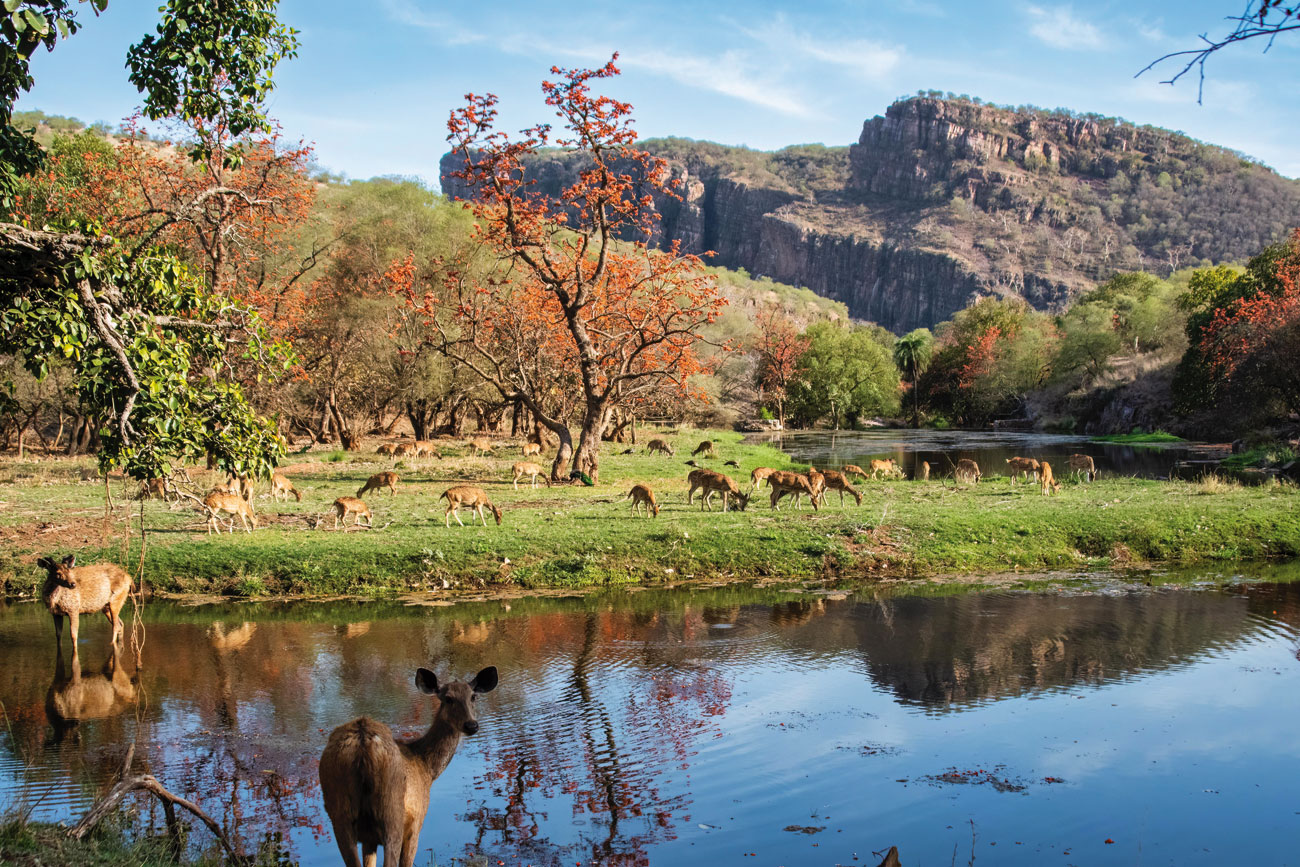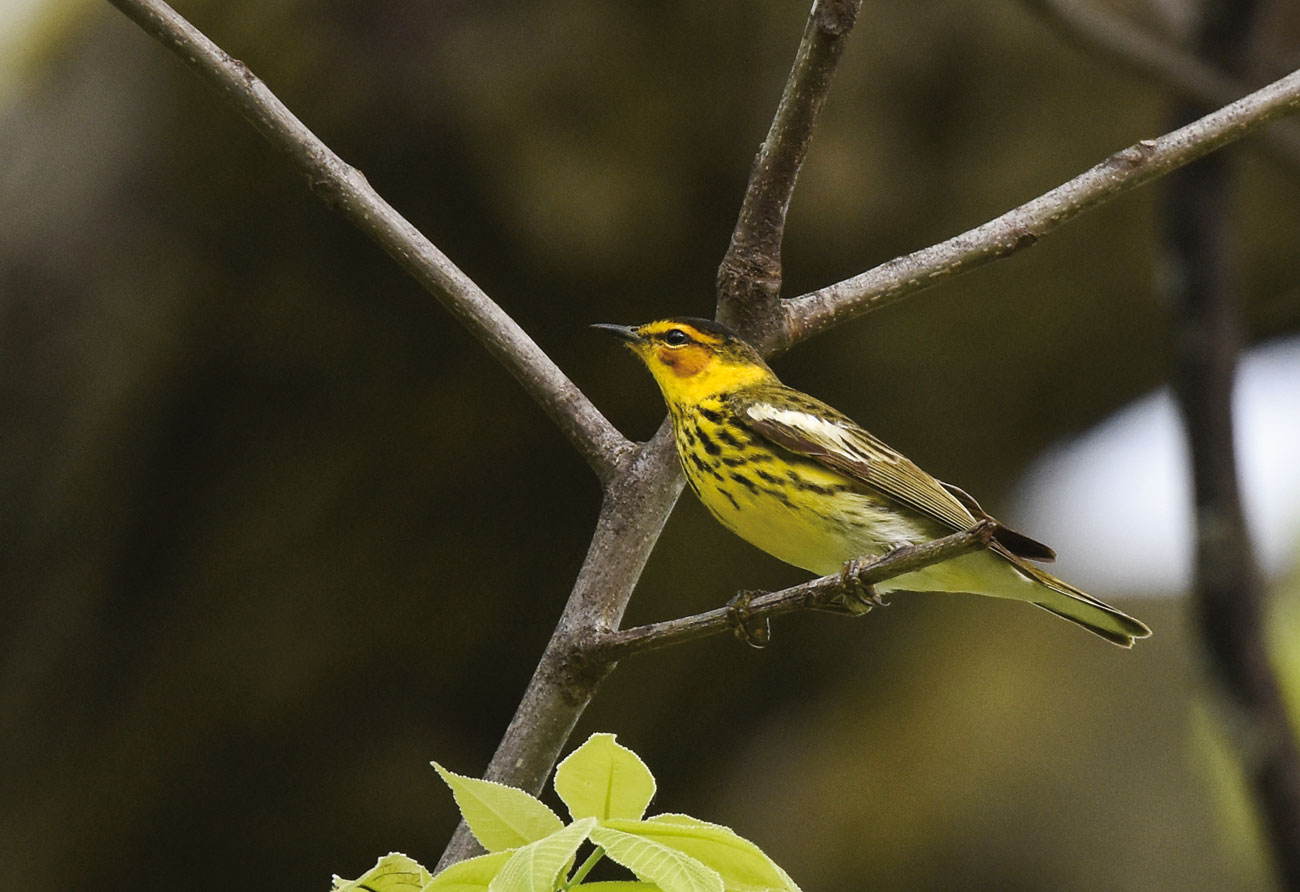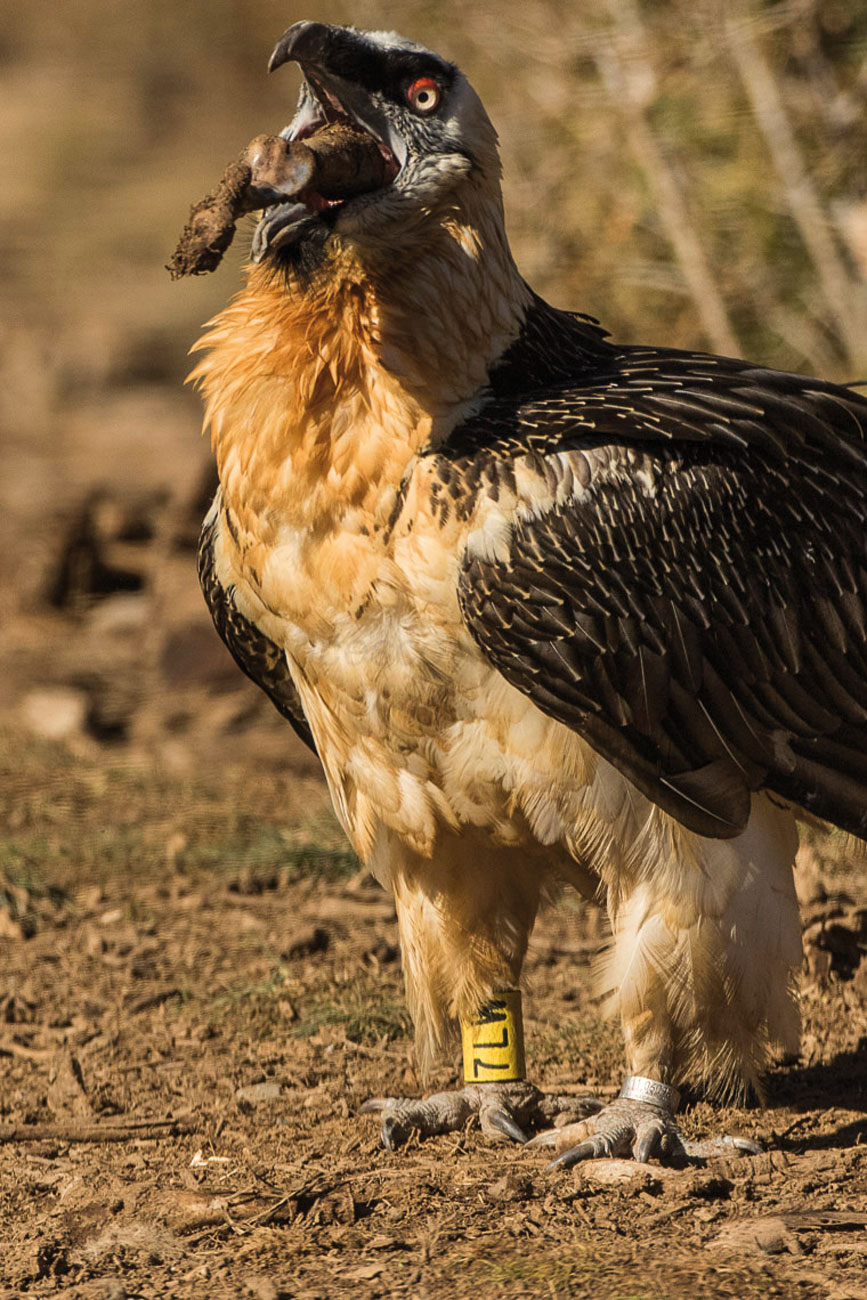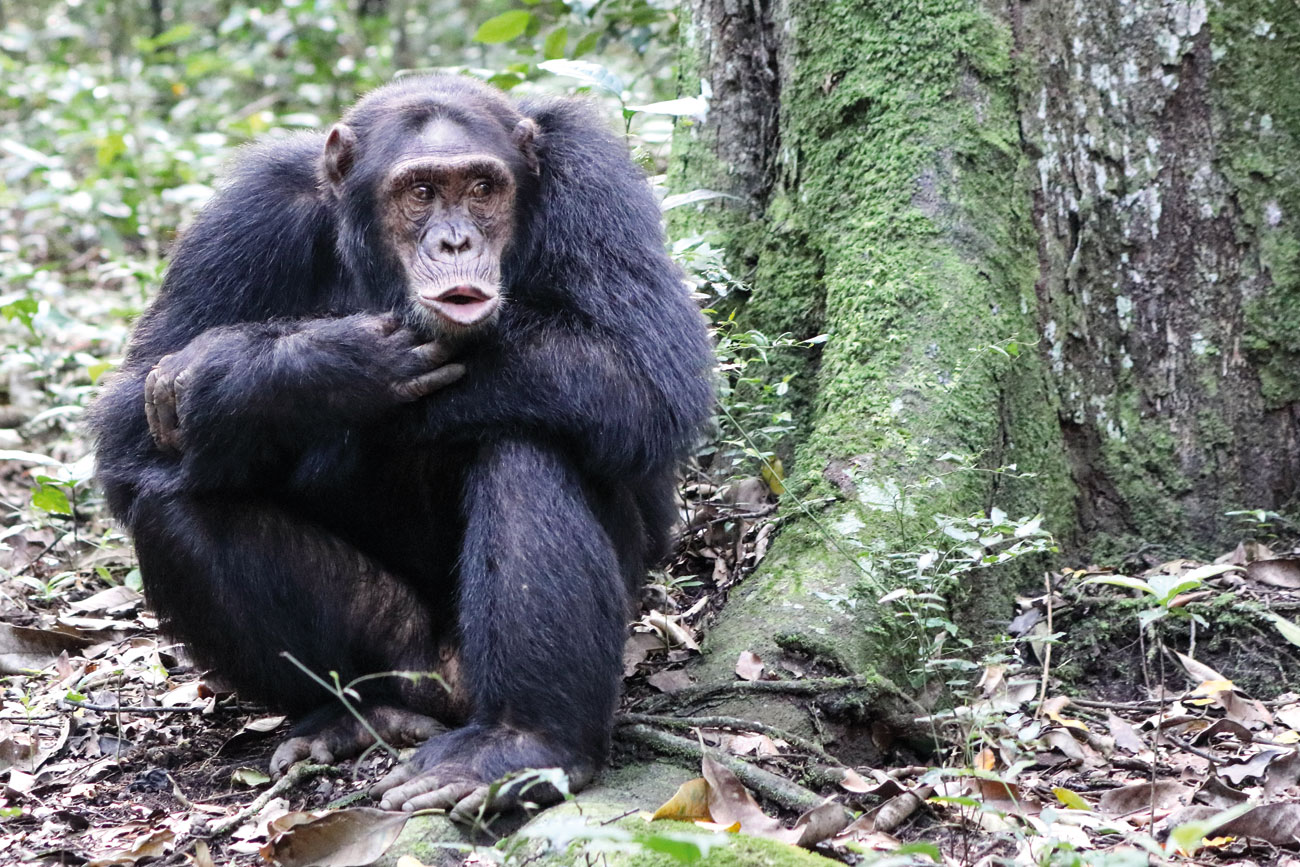Lessons In Sharing
First published in Sanctuary Cub,
Vol. 44
No. 1,
January 2024
The increasing demand and greed for resources is at the root of conflict across the world. We can turn to the natural world for examples of how evolution has guided animals to share the bountiful fruits that nature provides. Text by Bhavya Iyer.
“Imagine no possessions
I wonder if you can.
No need for greed or hunger
A brotherhood of man.
Imagine all the people
Sharing all the world.
You may say I’m a dreamer
But I’m not the only one.
I hope someday you’ll join us
And the world will live as one.”
– ‘Imagine’ (1971) by John Lennon, singer-songwriter and musician of the hit band The Beatles.

Millions of years of evolution have resulted in a delicate balance between resources and wild animals. Photo: Nyra Dicky Singhi/Sanctuary Photolibrary.
Flower Power
The 1960s and 70s were a time of much turmoil. The Cold War between the United States of America and the erstwhile Union of Soviet Socialist Republics (USSR) was ongoing, as was the Vietnam War, the Civil Rights Movement, disputes in Africa and the Middle East… But this period also saw people pushing back and calling for peace, equality and justice! It was at this time that John Lennon wrote his beautiful ode to a world where there are no borders, no war or suffering. This period also saw the Flower Power Movement – a non-violent protest against the Vietnam War, by people who called themselves ‘hippies’, and preached values of love and peace.

Future wars may be fought over water. Photo: Public Domain/Bob Metcalf.
Water Woes
Sadly, despite the repercussions of war and unrest, humanity has not learnt its lessons. Most disputes, then as now, revolve around control over resources such as water, oil and fertile land. Unrest in several African countries is often connected to the developed world’s demand for minerals, such as lithium to power smartphones and renewable energy devices. Fossil fuels are at the root of many conflicts. We are in the midst of a heightening water crisis, and future wars may well be fought over water.
A majority of water is used for agriculture and industry, with only a fraction for personal consumption. Extractive capitalism is making things worse – companies such as Coca Cola extract groundwater from drought-hit Mexico to produce and sell soft drinks even while local communities face acute water shortages. In some parts of the world, resources such as soil and water have been so contaminated by industry that people are forced to buy filtered drinking water.

Warbler species partition resources. Photo: Public Domain/Wildreturn.
A Natural Solution
The natural world provides us plenty of examples of how evolution has guided animals to (mostly) live in peace with one another.
One way that species with similar diets and behaviour coexist is by partitioning resources. This is not entirely from the goodness of their hearts – animals know that by avoiding each other and not having to fight, they save their energy for the important things, such as finding food and mates, and raising offspring! Some animals avoid being active when another species is at its peak activity time. Leopards become more nocturnal when an area has a lot of tigers, which are mostly diurnal, or active in the day.
Scientist Robert MacArthur found a novel way in which insectivorous warblers divided up resources. The Cap May Warbler and the Bay-breasted Warbler, residing in conifers trees used different parts of the tree. The former used the tree’s outer and top parts the most, while the latter probed the tree’s middle, towards the interior. Other species similarly divided up the remaining ‘niche’ or available habitat. This phenomenon is called niche partitioning.

Scavengers feed on carnivores’ leftovers. Photo: Public Domain/Francesco Veronesi.
Nature also ensures every resource is used fully, minimising waste and maximising how resources are used. Scavengers will feed on the leftovers of kills made by carnivores, eating the bits they don’t like.
Balance In Nature
~ Conflict does exist in the natural world, but it is crucial to maintain balance in ecosystems.
~ Carnivores feed on prey such as deer, keeping their population in control.
~ When predators are absent, deer numbers explode, leading to over-foraging and habitat degradation.
Sharing Is Caring
Another behaviour that has mystified scientists is ‘altruism’, where one individual helps another, even if it means doing harm to themselves. Vampire bats will feed blood to starving individuals, saving their lives – though it means less food for them! Many animals share food with one another, such as chimpanzees. Plants may pass nutrients to other sick trees via their roots..
Behaviours that look a lot like ‘compassion’ and ‘empathy’ are not foreign to the natural world. Perhaps it is an innate understanding that living for the greater good, benefits all of us. If only we could all learn to share resources like our wild counterparts, and put an end to the desire for self-enrichment that motivates us to fight for economic gain and power!

Chimpanzees have been observed sharing food with each other. Photo: Public Domain/Nigel Hoult.
A wildlife biologist and nature writer, Bhavya is interested in conservation, environmental policy and carnivore ecology. She is an Assistant Editor at Sanctuary Asia and a member of RewildEd.






